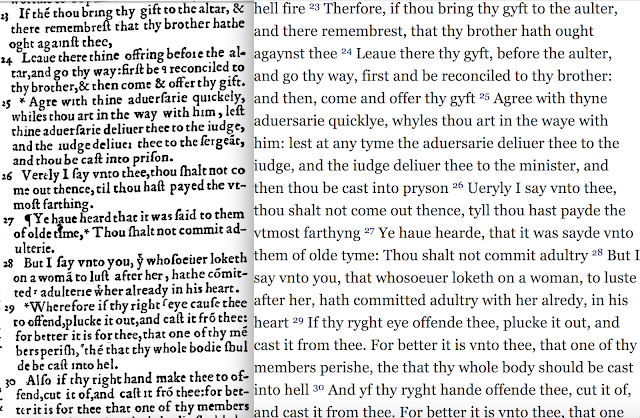A TALE OF HAMLET & TWO BIBLES: BISHOPS & GENEVA

A TALE OF HAMLET & TWO BIBLES: BISHOPS & GENEVA In Shakespeare’s time, the approved Bishops’ bible was used in church; the inexpensive Geneva translation was used at home. Specific words (unlike paraphrase) can point to specific translations: Regarding his accidental killing of Polonius (3.4), Hamlet says, “...heaven hath pleased it so,/ To punish me with this and this with me,/ That I must be their scourge and *minister*.” Hamlet's phrase, “scourge and minister,” uses "minister" in the same sense as the Bishops’ bible Mt 5:25 (in the picture below, right): a minister of justice carries out a judge’s sentence. Because church attendance was required (and absence punishable by fines), Shakespeare would have heard this word, used in this biblical context, every year, all his life. In the Bishops' bible, the word "minister" is used instead of the word "sergeant, which appears in the same place in the Geneva bible. But when Hamlet says...
